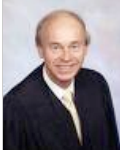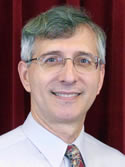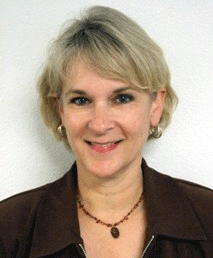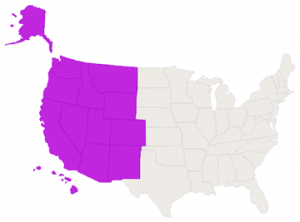by Hon Karl B. Grube, Senior Judge, St. Petersburg, Florida
September and October were bountiful months for traffic law-related judicial education in Arkansas. The first brought over 100 Arkansas District Court Judges to Hot Springs for a 2 ½ day program produced by the National Judicial College (NJC) and the Arkansas Administrative Office of the Courts. The second, in Little Rock, welcomed 30 judges from various national and international venues, in addition to 30 Arkansas judges, for the annual ABA Judicial Division (ABA/JD) Traffic Court Seminar. Attendance by Arkansas judges at both programs was made possible through the use of state Highway Safety Funds.
The Hot Springs program was the brain child of Arkansas State Judicial Educator, Marty Sullivan who has a long and successful history obtaining state highway funds for traffic-related judicial education programs. Federally granted State Highway monies funded the tuition and travel expenses of the 30 Arkansas judges who attended the ABA/Judicial Division’s Little Rock program. In addition to the Arkansas judges, judges and attorneys attended from Utah, Louisiana, Kansas, Tennessee, Puerto Rico, and the Virgin Islands.
Hot Springs, Arkansas, September 23-25, 2010
The hundred plus District Court judges who participated in the NJC program were treated to a specialized curriculum that was designed in collaboration with the District Court Judges Association and the Arkansas Administrative Office of the Courts. It included class segments highlighting the latest developments in the areas of Commercial Motor Vehicle law, Dealing with Hardcore Drunk Drivers, Using Technology such as Ignition Interlock Devices (IIDs) to Monitor and Manage Offenders, Ethical Aspects of Traffic Safety Community Outreach Programs, Dealing with Undocumented Offenders and Racial Profiling Issues. One of the most acclaimed segments dealt with DWI/Drug Courts in Arkansas. It featured a moderated program in which District Court Judge David Switzer led the audience through the process of implementing and successfully operating one of the three existing DWI/Drug Courts in Arkansas.
Little Rock, Arkansas October 13-15, 2010
Sixty judges from venues as far as Puerto Rico and the Virgin Islands settled into the beautifully restored Capital Hotel in Little Rock Arkansas for the 2½ day 2010 ABA Judicial Division Traffic Court Seminar. Of the sixty participants 30 were Arkansas Judges whose tuition and travel was funded through their Administrative Office of the Courts with Highway Safety monies. The Seminar featured class segments including Recent Supreme Court Decisions, Traffic Cases in Courts of Last Resort, Paperless Courts, Traffic Court Ethical Issues, Blood/Alcohol Pharmacology and Addiction, Judicial Outreach Best Practices, and Implementing and Sustaining a DWI/Drug Court. Participants were also treated to a reception at the Governor’s Mansion and a private tour of the Clinton Presidential Library.
State Judicial Educators and State Highway Funds
State Highway Offices, also known as State Public Safety Offices, exist in every state and are administered by Governors’ Highway Safety Representatives (GSRPs). The GSRPs manage each state’s highway safety program and serve as liaisons between their governors and the highway safety community. Judicial educators and judges, who handle impaired driving and other traffic-related matters, are an integral part of the highway safety community. Grants by State Highway Safety Offices are awarded to assist in the development and implementation of programs that address traffic safety issues such as impaired driving. These programs can include the education of judges and other criminal justice professionals. Funding for these grants are apportioned to states annually from the National Highway Traffic Safety Administration (NHTSA) according to a formula based on population and road mileage.
Getting GSRPs and Judicial Educators together
Judges who are involved with judicial education programs individually or through a State Judicial Organization should encourage their State Judicial Educators to get to know their Governors Representatives. Contact information can be obtained through the GSRP’s website found at http://www.statehighwaysafety.org/. Judges should also contact their Regional Judicial Outreach Liaisons (JOLs) to solicit their assistance in exploring and developing educational opportunities for themselves and their colleagues. Educating judges concerning impaired driving, Ignition Interlocks, and DWI Drug Courts is money well spent. With the assistance of your State Judicial Educator, GSRPs can be made aware of the dividends that can be yielded by educating your state’s judges.
 Judge Karl B. Grube has served as a State Trial Court Judge in the County Court for Pinellas County, Florida since his election to that office in 1976. Prior to assuming the bench, he served as an assistant public defender followed by private practice, which included being city attorney for Redington Beach, Florida. Judge Grube has served as president of the Florida Conference of County Court Judges and as assistant dean of the Florida New Judges College. He was also elected chair of the American Bar Association’s National Conference of Special Court Judges and has been active in the ABA’s Judicial Division, including occupying an elected seat on the ABA’s Judicial Council. Judge Grube is a member of the academic faculty of the National Judicial College and the University of Phoenix. He also lectures at the Stetson University College of Law in St. Petersburg, Florida. He has published legal articles through the American Bar Association, the National Judicial College, The Florida Bar Journal, The State Court Journal, Stetson College of Law’s Law Review and the Journal of Law and Technology. He received his Bachelor of Science degree in Business Administration from Elmhurst College, in Illinois, his Juris Doctor degree from Stetson University in Florida, and in 1992 was awarded a Masters Degree in Judicial Studies from the University of Nevada.
Judge Karl B. Grube has served as a State Trial Court Judge in the County Court for Pinellas County, Florida since his election to that office in 1976. Prior to assuming the bench, he served as an assistant public defender followed by private practice, which included being city attorney for Redington Beach, Florida. Judge Grube has served as president of the Florida Conference of County Court Judges and as assistant dean of the Florida New Judges College. He was also elected chair of the American Bar Association’s National Conference of Special Court Judges and has been active in the ABA’s Judicial Division, including occupying an elected seat on the ABA’s Judicial Council. Judge Grube is a member of the academic faculty of the National Judicial College and the University of Phoenix. He also lectures at the Stetson University College of Law in St. Petersburg, Florida. He has published legal articles through the American Bar Association, the National Judicial College, The Florida Bar Journal, The State Court Journal, Stetson College of Law’s Law Review and the Journal of Law and Technology. He received his Bachelor of Science degree in Business Administration from Elmhurst College, in Illinois, his Juris Doctor degree from Stetson University in Florida, and in 1992 was awarded a Masters Degree in Judicial Studies from the University of Nevada.




